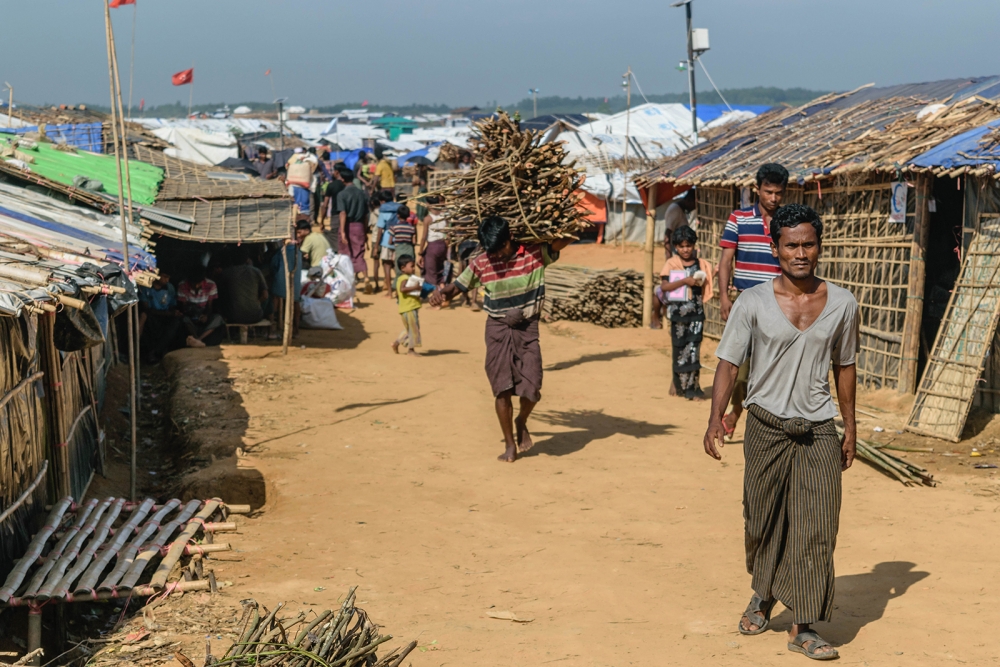Linking local production and refugee nutrition is key to ‘maintain harmony’ in Cox’s Bazar

The Food and Agriculture Organisation (FAO) has distributed seeds and agricultural machinery to over 500 host families in Cox’s Bazar, Bangladesh to enable them to grow new varieties of crops to sell and eat.
The FAO hopes this will also help to improve the nutrition of Rohingya refugees in the area.
It is estimated that approximately 1.2 million people living in Cox’s Bazar will require humanitarian assistance in 2018 and food security remains a critical aspect of this.
At the end of last month the FAO distributed 72 power tillers, 72 high-efficiency water pumps, 72 sprayers and 240 kg of high-nutrient vegetable seeds to the Ukhiya and Teknaf sub-districts of Cox’s Bazar.
The recipients of the donations will now be able to prepare and cultivate the land near their homes, providing an income for themselves and nutritious food for refugees.
The machinery and seeds provided by the FAO are part of an International Organisation for Migration (IOM) project that also involves training host community farmers’ associations in growing high-value crops, storing food safely for refugees and keeping food away from pests and mould.
Cox’s Bazar is now home to approximately 900,000 Rohingya refugees who have fled persecution in Myanmar, with around 700,000 having arrived since august 2017.
The sudden influx of refugees to Bangladesh has created a number of risks regarding food security, disaster resilience and health.
Recently, the World Health Organisation called for a significant scaling up of health services as demands increase. For example, 60,000 children are expected to be born in the refugee camp over the next year.
Three quarters of the refugees who have fled to Bangladesh are women and children, many of whom are now suffering from malnourishment.
The high number of refugees has led to an increase in cooking and food prices as demand soars. Whereas, the increased competition on the local labour markets has lowered daily wage rates.
The sudden population increase has also caused a decrease in the supply of cooking fuel and has severely depleted the resources of local forests.
The strained public services, food prices and fuel supplies are creating tensions between host communities and the refugees.
David Doolan, acting FAO Representative in Bangladesh said:
“Linking local production to expanding refugee food markets aims to sustainably improve food security and nutrition for host communities and refugees”
“Critically, this work also seeks to lower tensions between the communities through contributing to social cohesion, with the aim of maintaining harmony”
The most vulnerable families were given priority during the FAO’s donation process, this includes families headed by women and families caring for people with a disability or elderly relatives.
The FAO is seeking urgent funding of US$22.4 million to strengthen its emergency response, including addressing environmental impacts and reducing disaster risk, supporting livelihoods and markets, and strengthening food security coordination.
The AIDF Asia Summit will return for its 4th year on 20-21 June in Bangkok. This year’s event will focus on disaster, resilience, response and development. Find out more information on the summit here.
If you’d like to stay informed on the latest updates in aid and development, please sign up to the AIDF newsletter.
Image credit: FAO Emergencies














